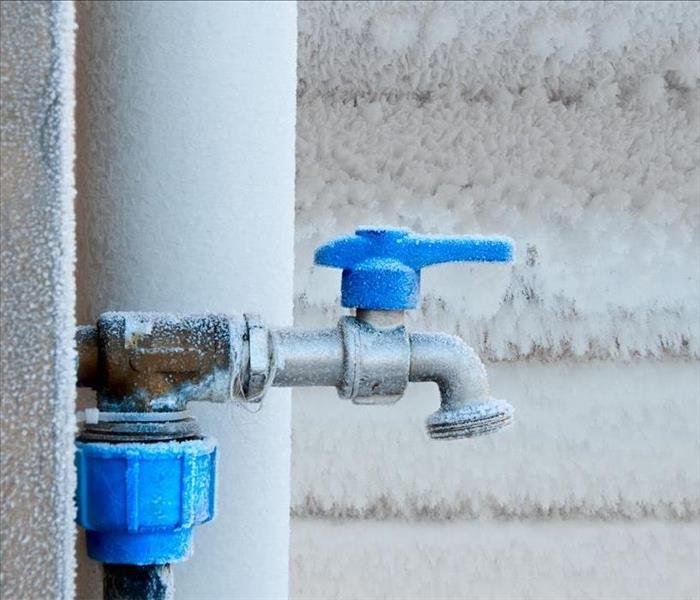How To Prevent Pipes From Freezing
9/20/2021 (Permalink)
Winter can take a toll on your home in Surry, VA. One of the most common problems homeowners face when a big freeze hits the area is frozen pipes. Not only does this issue keep water from getting where it needs to go, but it can also cause a great deal of damage to the space around the fissure. Here are several ways you can keep your pipes from freezing and tips on how to handle the mess if they do.
Prevent Frozen Pipes
Winterize Your Home
Before the first freeze, your maintenance plan should include getting your house ready for cold extremes. There are several tasks you must check off your list to prepare for winter:
- Tune-up furnace
- Replace old insulation
- Check for air leaks in windows and doors
- Make sure the attic is properly ventilated
Winterization makes good economic and ecological sense by saving energy, but that's not the only benefit. By taking measures to keep cold air out of your home and warm air inside, you are more likely to avoid a pipe freeze.
Keep Pipes Warm
Even if your plumbing is located within an exterior wall, you can still avoid frozen pipes by keeping them warm. In addition to the insulation in the wall, you can insulate the pipes themselves, giving them extra protection. Heat cables can also be wrapped around pipes to keep them from freezing. For extra warmth, consider keeping cabinets open and a small drip going overnight.
Keep Thermostat Consistent
When you see your utility bill start to skyrocket during the winter, it can be tempting to turn the heater off during the day while everyone is at work or school. This can end up costing you more trouble and money in the long run, though. Pipes can freeze even when the sun's out if the temperature is cold enough. Keep your thermostat set to at least 55 degrees throughout the season to protect them.
Safeguard Outdoor Faucets
Some of the most vulnerable pipes in your home are the ones attached to outdoor faucets. Since you probably don't use your garden hoses often when it's cold outside, detach them from their water sources and store them for the winter. Then drain the line that leads to the pipe so that no water can get trapped and bust the pipe. Cover the faucet to protect it from the elements.
Clean Up Quickly
Despite your best preparation, pipes can still freeze, especially if your area experiences blackouts that cause you to lose power to your home for many hours. If this happens, you may still be able to avoid extensive damage by turning off the water main and warming exposed pipes with a hairdryer. If this doesn't help, the pipe burst may be inside the wall. Call a plumber as soon as possible to fix the pipe, and contact water damage mitigation specialists to remove ruined materials and restore the structure surrounding the pipe.
There are many things you can do to prevent frozen pipes in your home. Take the necessary precautions and keep trusted professionals on speed dial to protect your home during winter.




 24/7 Emergency Service
24/7 Emergency Service
